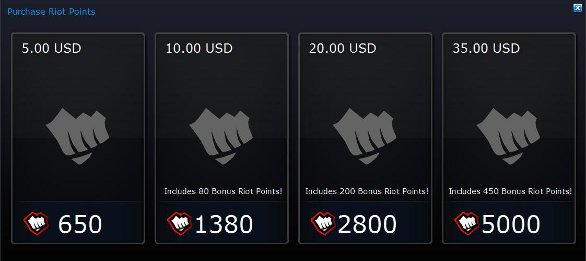I’m sure you’ve all had an experience like this at one point: you’re online and you see a game or download you’re particularly interested in. There’s one minor problem: you can’t directly purchase it with real currency. You’ll need to exchange your hard-earned cash for in-service “points” which can then be put towards that thing you’ve got your eye one. There’s another problem, too. The product costs 1200 ‘points.’ The only points packages available come in iterations of 500.
You grit your teeth and shell out for 1500 points. Sure, it’s more than you were willing to spend; sure, it’ll mean you’re going to have 300 points you’ll probably never use taking up space on your account…but what choice do you have? It’s a sleazy, underhanded practice, sure…but unless you want to forgo any additional content, you’ll just have to grin and bear it.
This is a point system. Instead of simply allowing users to purchase content with money, many developers introduce a ‘middleman’ into the equation. Rather than allow for purchases by credit, debit, or Paypal, these developers shoehorn in their own specialized form of digital currency which users must exchange for in order to access add-ons

The list of organizations which engage in this sort of questionable behavior is both long and varied, and includes some of the biggest names in gaming. Microsoft, Riot Games, Nintendo…you get the idea. The one thing all of these developers have in common is that they’ve all made the decision to utilize this breed of purchasing system; offering points in impractical increments just so their users will spend more. It’s enough to leave a bad taste in anyone’s mouth, and certainly enough to turn a user against the very idea of a ‘points’ system.
That isn’t the only problem with point systems, however. Another issue with them – though one that, from a business standpoint, is a perfectly sound concept – is that it starts to become difficult to track how much what you’re buying actually costs. The introduction of an alternative form of ‘in-game currency’ can make it somewhat easy to forget that you’re spending actual money, making a user likely to spend more generously than they otherwise would.
The question, of course, is whether or not this increased likelihood is worth the effort.
Further, the implementation of such systems can make it far easier for an organization to ‘reward’ its users with in-game credit, and provides another means by which users can give ‘gifts’ to other users. Plus, there’s something that’s oddly appealing about purchasing something with ‘points’ instead of cash, though I can’t quite put my finger on it. Still, one has to question whether or not such advantages are actually enough – after all, it’s fairly clear that micro-transactions and DLC work perfectly well without such practices.

Points systems do have their strong points. Even so, I can’t say I’m a fan of them – particularly given the fact that, in the vast majority of cases, the means by which they’re incorporated almost always involves over-large (and sometimes overpriced) increments. That Microsoft and Sony are both talking of phasing them out with the next generation of consoles (Nintendo is already in the process of doing so) is telling enough: where purchasing methods are concerned, there’s simply a better way of making sales, one which doesn’t alienate the user and make them feel as though they’ve been had.

